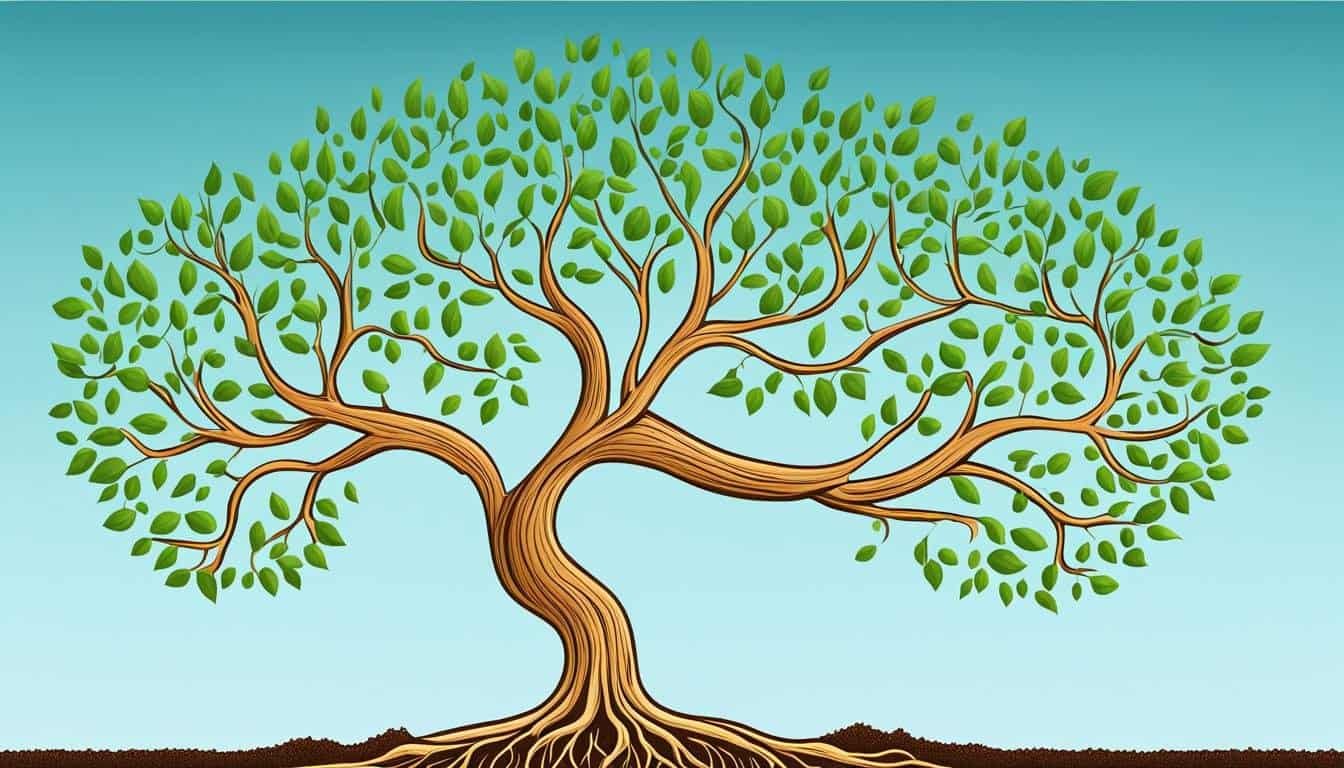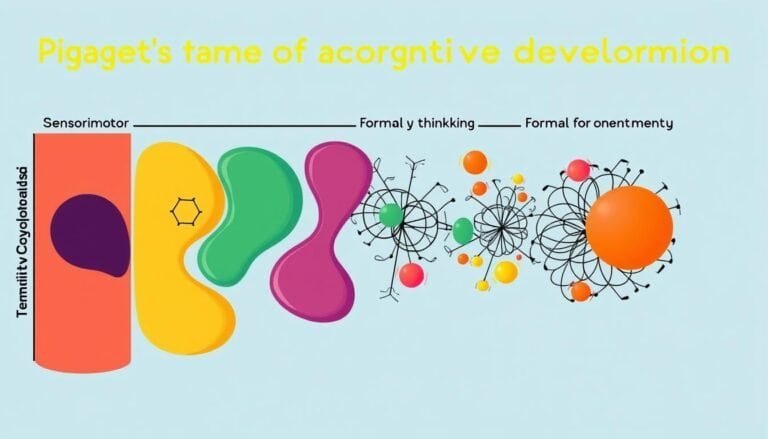Lessons from Carol S. Dweck: Growth Mindset Gems
In the words of Carol S. Dweck, renowned psychologist and author, “Becoming is better than being.” These powerful words encapsulate the essence of a growth mindset, a concept that has revolutionized the way we approach success, learning, and personal development.
Carol S. Dweck’s groundbreaking work on the psychology of success has shed light on the power of having a growth mindset versus a fixed mindset. While a fixed mindset believes that our abilities and talents are predetermined, a growth mindset recognizes that we can cultivate and improve our skills through effort, perseverance, and a love for learning.
In this article, we will explore the valuable insights Carol S. Dweck offers through her extensive research and best-selling book on mindset. We will delve into the concept of a growth mindset, understand the limitations of a fixed mindset, and discover practical strategies to foster a growth mindset in various areas of life.
Key Takeaways:
- Embracing a growth mindset allows for continuous personal and professional growth.
- A growth mindset challenges the belief that intelligence and talent are fixed traits.
- A fixed mindset focuses on innate abilities, while a growth mindset emphasizes effort and perseverance.
- Developing a growth mindset requires embracing challenges and viewing setbacks as opportunities for learning.
- A growth mindset fosters resilience, positive thinking, and a love for learning.
The Power of a Growth Mindset
Carol Dweck’s groundbreaking concept of a growth mindset challenges the notion that intelligence and talent are fixed traits. Instead, she asserts that everyone has the capacity to develop their abilities through dedication and hard work. Embracing a growth mindset has the power to unlock tremendous potential and foster a love for learning.
A growth mindset is more than just a belief; it is a psychological framework that shapes how individuals approach challenges and setbacks. When faced with obstacles, those with a growth mindset view them as opportunities for growth and development. They understand that effort and perseverance are key to achieving success in any endeavor.
“The passion for stretching yourself and sticking to it, even (or especially) when it’s not going well, is the hallmark of the growth mindset. This is the mindset that allows people to thrive during some of the most challenging times in their lives.” – Carol S. Dweck
Developing resilience is a core component of a growth mindset. It involves bouncing back from failures, embracing mistakes as learning opportunities, and cultivating perseverance in the face of adversity. Resilience enables individuals to overcome obstacles and setbacks with a positive attitude, ultimately propelling them towards success.
Fostering a Growth Mindset for Success
Embracing a growth mindset is crucial for achieving success in various areas of life. Whether in education, career, or personal relationships, individuals with a growth mindset are more likely to excel and embrace continuous growth and improvement. By adopting the following strategies, you can cultivate a growth mindset and unleash your full potential:
- Embrace challenges: Seek out opportunities that stretch your abilities and provide room for growth. Embracing challenges fosters an open mindset and helps build resilience.
- Cultivate a love for learning: Approach new knowledge and skills with curiosity and enthusiasm. Embrace the joy of learning and constantly seek opportunities for self-improvement.
- Develop self-awareness: Recognize your own fixed mindset tendencies and actively work on shifting them towards a growth mindset. Identify and challenge self-limiting beliefs that hinder personal growth.
- Practice positive self-talk: Replace negative self-talk with positive affirmations that reinforce your belief in your ability to grow and improve. Encourage yourself during challenging times.
- Seek feedback: Embrace feedback as a valuable tool for growth. Actively seek constructive criticism and use it to enhance your skills and performance.
By adopting these strategies, you can cultivate a growth mindset and tap into your unlimited potential for success and personal development.
Understanding the Fixed Mindset
In contrast to the growth mindset, the fixed mindset assumes that one’s qualities, such as intelligence or talent, are fixed and unchangeable. Rather than focusing on developing their abilities, individuals with a fixed mindset often prioritize documenting their talents. This mindset perpetuates the belief that success is solely dependent on inherent talent, leading to a fear of failure and discouraging efforts for growth.
Individuals with a fixed mindset tend to believe that their abilities are predetermined and cannot be improved through effort. They may hold self-limiting beliefs that hinder their personal development and prevent them from embracing new challenges. Instead of viewing setbacks as opportunities for learning and growth, they interpret them as indications of their inherent limitations, further reinforcing their fixed mindset.
“You have a certain amount of talent, and that’s it. You either have it or you don’t.”
The fixed mindset places a heavy emphasis on talent rather than effort. Individuals with this mindset may avoid taking on challenging tasks or risk failure, fearing that their abilities will be exposed. They may also compare themselves to others, feeling inadequate when they perceive others as more talented or successful.
The Impact of Fear of Failure
Fear of failure plays a significant role in perpetuating the fixed mindset. Rather than viewing failure as an opportunity for growth, individuals with a fixed mindset perceive it as evidence of their limitations and inadequacy. This fear of failure can hinder personal and professional development, preventing individuals from pursuing their goals and taking calculated risks to achieve success.
Overcoming Self-Limiting Beliefs
Overcoming self-limiting beliefs associated with the fixed mindset is crucial for personal growth and success. It requires a shift in perspective, recognizing that abilities can be developed through effort and perseverance. By embracing a growth mindset, individuals can break free from self-imposed limitations and open themselves up to new possibilities.
Challenging fixed mindset beliefs involves reframing failures as opportunities for learning and viewing effort as a vital component of success. By cultivating a passion for learning and a belief in the power of effort, individuals can develop a growth mindset and unlock their full potential.
In the table below, we compare the characteristics of the fixed mindset and the growth mindset:
| Fixed Mindset | Growth Mindset |
|---|---|
| Belief in fixed qualities and abilities | Belief in the potential for growth and development |
| Fear of failure and avoidance of challenges | Embracing challenges and seeing failure as an opportunity for growth |
| Focus on documenting talents rather than developing them | Emphasis on effort and perseverance to develop abilities |
| Comparing oneself to others and feeling inadequate | Appreciating others’ accomplishments without feeling threatened |
| Self-limiting beliefs that hinder personal growth | Belief in the power of effort and dedication for personal and professional success |
The Impact of the Fixed Mindset
The fixed mindset can have far-reaching consequences on individuals and their overall well-being. This mindset is characterized by a fear of inadequacy and a tendency to compare oneself to others, often leading to envy and jealousy. The limitations of a fixed mindset can hinder personal growth and contribute to self-esteem issues. Let’s explore the impact of the fixed mindset in more detail.
Limitations of the Fixed Mindset
The fixed mindset creates a belief that talents and abilities are fixed traits, leading individuals to believe that they are limited by their inherent qualities. This mindset discourages effort and growth, as individuals perceive their abilities as unchangeable. Consequently, they may avoid challenges, fearing failure and the exposure of their inadequacies. This fear can prevent them from pursuing new opportunities and developing new skills.
Envy and Jealousy
The fear of inadequacy that arises from the fixed mindset often leads to envy and jealousy. When individuals compare themselves to others and perceive them as having superior talents or abilities, they may feel envious of their achievements. This comparison can create a sense of resentment and bitterness, hindering their ability to celebrate the success of others. Envy and jealousy can erode relationships and create a negative outlook on life.
“Comparison is the thief of joy.” – Theodore Roosevelt
Fear of Inadequacy and Self-Esteem Issues
The fixed mindset fosters a fear of inadequacy, as individuals constantly measure themselves against others and perceive themselves as falling short. This fear can lead to low self-esteem and a negative self-image. It creates a cycle of self-doubt and self-criticism, making it difficult for individuals to recognize their own worth and appreciate their unique abilities. Over time, this can take a toll on their mental and emotional well-being.
Overcoming the Impact of the Fixed Mindset
Recognizing the limitations of the fixed mindset is the first step towards overcoming its negative impact. By cultivating a growth mindset, individuals can break free from the cycle of fear and comparison. Embracing a growth mindset allows for the belief that abilities can be developed through effort and learning. This mindset encourages personal growth, resilience, and self-compassion. By focusing on their own journey of progress, individuals can overcome the negative effects of the fixed mindset and unlock their full potential.
Next, we will explore practical strategies for embracing a growth mindset in various areas of life, including education, personal development, and professional growth.
Embracing a Growth Mindset
Embracing a growth mindset is about more than just believing in the potential for personal growth and development. It’s about actively cultivating resilience, developing a love for learning, and seeking out new challenges. By adopting this mindset, individuals can unlock their full potential and experience tremendous personal and professional growth.
Building resilience is a key aspect of embracing a growth mindset. Resilience allows individuals to bounce back from setbacks and failures, learning valuable lessons along the way. It involves recognizing that challenges and obstacles are opportunities for growth and development rather than barriers to success.
“The only way to discover the limits of the possible is to go beyond them into the impossible.” – Arthur C. Clarke
Seeking out challenges is another essential element of a growth mindset. Instead of shying away from difficult tasks, individuals with a growth mindset actively seek out opportunities to grow and stretch their capabilities. Challenges provide the chance to learn new skills, acquire knowledge, and develop a deeper understanding of oneself.
Developing a love for learning is a core aspect of embracing a growth mindset. When individuals approach learning with curiosity and enthusiasm, they open themselves up to endless possibilities for growth. A love for learning fuels motivation, perseverance, and a continuous desire to improve.
Fostering a Growth Mindset: Practical Strategies
To cultivate a growth mindset, it’s essential to integrate practical strategies into daily life:
- Set goals: Establish clear, achievable goals that push you outside your comfort zone, providing an opportunity for growth.
- Adopt a positive mindset: Embrace optimism and positive thinking to overcome self-doubt and develop resilience.
- Embrace failure: View failure as a valuable learning experience and an opportunity for growth. Embrace mistakes as stepping stones to success.
- Cultivate a growth-oriented environment: Surround yourself with like-minded individuals who support and encourage your growth mindset.
- Practice self-reflection: Regularly reflect on your mindset, focusing on areas for improvement and celebrating personal growth achievements.
By actively embracing a growth mindset, individuals can unlock their full potential, break through self-imposed limitations, and achieve extraordinary personal and professional growth.
Overcoming the Not Enough Syndrome
Feeling inadequate and comparing oneself to others can be sources of great distress and self-doubt. The “not enough” syndrome is a common struggle that many individuals face, affecting their confidence and overall well-being. However, it is possible to overcome these challenges and develop self-compassion.
Developing a growth mindset is a powerful tool in shifting our perspective from one of lack to one of growth and potential. By recognizing that our abilities can be developed through dedication and effort, we can break free from the cycle of comparison and self-doubt.
Embracing Self-Compassion
One of the key steps in overcoming the not enough syndrome is cultivating self-compassion. When we are kind and understanding towards ourselves, we can break free from the negative self-talk and judgments that fuel feelings of inadequacy. Embracing self-compassion involves treating ourselves with the same kindness and understanding we would extend to a friend facing similar struggles.
Self-compassion allows us to acknowledge that everyone has their own unique journey and strengths, and that comparing ourselves to others only leads to unnecessary suffering. It helps us develop a healthier perspective on our own achievements and failures, recognizing that they are part of our growth process.
Shifting Focus to Personal Growth
Instead of constantly comparing ourselves to others, we can shift our focus to personal growth and improvement. A growth mindset encourages us to embrace challenges and see them as opportunities for learning and development. By setting our own goals and focusing on progress rather than perfection, we can cultivate a sense of fulfillment and accomplishment.
It’s important to remember that everyone has their own strengths and weaknesses, and no one is perfect. Rather than striving to be like someone else, we can work on becoming the best version of ourselves. This shift in mindset allows us to appreciate our own unique qualities and contributions.
“Comparison is the thief of joy.” – Theodore Roosevelt
Comparing ourselves to others often leads to feelings of inadequacy, as we are focusing on what we perceive as our own shortcomings compared to someone else’s strengths. It’s important to remember that everyone has their own journey and struggles. By embracing a growth mindset and fostering self-compassion, we can break free from the not enough syndrome and find joy in our own accomplishments and growth.
In the next section, we will explore the role of mindset in confidence and how embracing a growth mindset can contribute to cultivating self-assurance in various aspects of life.
The Role of Mindset in Confidence
Confidence plays a crucial role in our personal and professional lives, influencing our ability to take risks, pursue goals, and overcome challenges. But have you ever considered the impact that mindset has on confidence? In the groundbreaking work of Carol S. Dweck, renowned psychology professor at Stanford University, the relationship between mindset and confidence becomes crystal clear.
The fixed mindset, characterized by the belief that intelligence and talent are innate and unchangeable, often links confidence to these fixed qualities. People with a fixed mindset may think, “I either have what it takes or I don’t,” resulting in a lack of confidence if they perceive themselves as lacking in innate ability.
On the other hand, the growth mindset, championed by Dweck, recognizes that confidence can be developed through effort and learning. Those with a growth mindset understand that abilities and intelligence can be cultivated and improved over time. This belief fosters a sense of confidence that is not dependent on predefined qualities but on the belief in one’s potential to grow and develop.
The Connection Between Growth Mindset and Confidence
When individuals adopt a growth mindset, they view challenges and setbacks as opportunities for growth rather than as reflections of their abilities. The belief that effort and learning are the keys to mastery fuels their confidence in tackling new endeavors and persisting in the face of obstacles.
Furthermore, cultivating self-assurance through a growth mindset involves recognizing the value of hard work, seeking constructive feedback, and learning from failures. By embracing a growth mindset, individuals can cultivate a sense of confidence that is not hindered by self-doubt or fear of failure.
“The only limit to our realization of tomorrow will be our doubts of today.” – Franklin D. Roosevelt
This quote from Franklin D. Roosevelt beautifully captures the essence of a growth mindset’s impact on confidence. By actively nurturing a belief in their capacity for growth, individuals can push past doubts and unlock their full potential.
Strategies for Cultivating Self-Assurance through a Growth Mindset
If you’re ready to cultivate self-assurance and embrace a growth mindset, here are some strategies to get you started:
- Challenge your self-limiting beliefs: Identify and challenge the beliefs that hold you back, such as thinking you’re not good enough or that your abilities are fixed. Replace these beliefs with a growth-oriented mindset that emphasizes learning and growth.
- Set realistic goals: Break down your goals into manageable steps and celebrate small wins along the way. Recognize that setbacks are part of the learning process and an opportunity for growth, rather than a reflection of your abilities.
- Cultivate a love for learning: Embrace a curiosity-driven mindset and seek opportunities for continuous learning and personal development. Emphasize the process of learning and growth rather than the end result.
- Surround yourself with growth-minded individuals: Connect with people who inspire and support your growth. Engage in discussions that promote a growth mindset and learn from others’ experiences and perspectives.
By implementing these strategies and adopting a growth mindset, you can cultivate self-assurance and unlock your true potential.
| Fixed Mindset and Confidence | Growth Mindset and Confidence |
|---|---|
| Confidence linked to innate talent or intelligence | Confidence developed through effort and learning |
| Fear of failure and self-doubt undermine confidence | Challenges and setbacks viewed as opportunities for growth |
| Comparison to others and envy impact confidence | Focus on personal growth and progress |
| Confidence hindered by fixed attributes and self-limiting beliefs | Confidence fueled by belief in growth and potential |
The Importance of Failure and Mistakes
Failure and mistakes are not to be feared, but rather embraced as essential components of growth and success. When we adopt a growth mindset, we view failure and mistakes as valuable opportunities for learning and personal development. Rather than defining our worth or capabilities, they serve as stepping stones on our journey towards achieving our goals.
Embracing a growth mindset allows us to overcome the fear of failure and the stigma associated with making mistakes. It encourages us to approach challenges with resilience and perseverance, knowing that setbacks are merely temporary roadblocks that can be overcome with effort and determination. By taking risks and learning from our failures, we expand our comfort zones and discover new possibilities we may have otherwise missed.
Learning from Failure
Failure provides valuable lessons that propel us forward on our path to success. It teaches us resilience, as we learn to bounce back from setbacks and persevere towards our goals. Each failure presents an opportunity to analyze what went wrong, identify areas for improvement, and make necessary adjustments. By learning from our failures, we gain knowledge and insight that can guide us towards better strategies and decision-making in the future.
“Failure is simply the opportunity to begin again, this time more intelligently.”
– Henry Ford
Embracing Mistakes
Mistakes are not to be avoided or hidden, but rather embraced as valuable learning experiences. When we make mistakes, we gain firsthand knowledge of what doesn’t work, helping us refine our approaches and strategies. Mistakes also challenge us to think creatively and find innovative solutions to problems. By embracing mistakes, we create a culture of continuous improvement and innovation that fuels personal and professional growth.
Building Resilience with a Growth Mindset
A growth mindset enables us to develop resilience, which is crucial for navigating the ups and downs of life. Rather than viewing failure as a setback, a growth mindset allows us to see it as a necessary stepping stone towards success. Each failure becomes an opportunity for growth and self-improvement. By embracing failure and mistakes, we cultivate resilience and develop the mental and emotional strength to overcome challenges and persevere towards our goals.
| Benefits of Embracing Failure and Mistakes | Risks of Avoiding Failure and Mistakes |
|---|---|
|
|
By embracing failure and mistakes, we unlock our full potential and foster a growth mindset that propels us towards success. It is through these experiences that we gain invaluable lessons, reinforce our resilience, and cultivate the mindset necessary for continuous growth and personal development.
Cultivating a Growth Mindset in Education
The concept of a growth mindset is particularly relevant in the field of education. By fostering a growth mindset in students and educators, schools can create a positive and supportive learning environment that promotes a love of learning and personal growth. Embracing a growth mindset in education has numerous benefits for both students and educators alike.
Mindset for Students
When students develop a growth mindset, they believe that their abilities can be improved through dedication and effort. This belief empowers them to embrace challenges, persevere through setbacks, and view mistakes as opportunities for learning and growth. Students with a growth mindset are more likely to set meaningful goals, take ownership of their learning, and persist in the face of difficulties. As a result, they tend to achieve higher academic success and develop essential life skills such as resilience and self-motivation.
Mindset for Educators
Equally important is fostering a growth mindset among educators. When teachers adopt a growth mindset, they believe in their own ability to learn, adapt, and improve their teaching practices. This mindset encourages educators to continuously seek out professional development opportunities, reflect on their teaching strategies, and explore innovative approaches to instruction. Educators with a growth mindset also provide constructive feedback to students, praise effort rather than just outcomes, and create a safe learning environment where students feel comfortable taking risks and exploring new ideas.
Strategies for Fostering a Growth Mindset in Schools
Creating a culture of growth mindset in schools involves implementing strategies that nurture and support the development of a growth mindset among students and educators. Some effective strategies include:
- Teaching the science of neuroplasticity: Educating students about the brain’s ability to grow and change through effort can help them understand that intelligence is not fixed.
- Promoting a positive learning environment: Emphasizing effort, progress, and improvement rather than focusing solely on grades and test scores can motivate students to embrace challenges and persist in their learning journey.
- Encouraging reflection and self-assessment: Providing opportunities for students to reflect on their learning, set goals, and assess their progress helps them develop metacognitive skills and take ownership of their learning.
- Modeling a growth mindset: Educators play a critical role in modeling a growth mindset through their words and actions. By sharing personal stories of struggle, perseverance, and growth, educators can inspire and motivate students to develop a growth mindset.
- Implementing growth mindset interventions: Utilizing specific interventions such as growth mindset workshops, mindset journals, and growth mindset language can further strengthen the development of a growth mindset in schools.
By implementing these strategies and cultivating a growth mindset in education, schools can create an empowering learning environment that supports the academic and personal growth of all students.
| Benefits of a Growth Mindset in Education | Examples |
|---|---|
| Improved academic performance | Students with a growth mindset tend to achieve higher grades and academic success. |
| Increased motivation and resilience | Students and educators with a growth mindset are more motivated and resilient in the face of challenges. |
| Enhanced self-confidence | A growth mindset helps students develop self-confidence in their abilities to learn and improve. |
| Positive learning environment | A growth mindset fosters a supportive and inclusive learning environment where students feel valued and encouraged. |
| Lifelong learning skills | Students who embrace a growth mindset develop essential skills such as critical thinking, problem-solving, and adaptability. |
Applying a Growth Mindset in Personal and Professional Life
A growth mindset is not limited to the realm of education; it has the power to transform various aspects of life, including personal and professional endeavors. By adopting a growth mindset, individuals can unlock their full potential, achieve success, experience personal growth, and foster positive relationships.
In the workplace, a growth mindset enables individuals to embrace challenges, seek opportunities for skill development, and persist in the face of setbacks. It encourages a mindset of continuous learning and improvement, leading to increased job satisfaction and professional growth. By believing in their ability to learn and adapt, individuals with a growth mindset are more likely to overcome obstacles and achieve their goals.
Embracing a growth mindset allows you to approach challenges with resilience and view them as opportunities for growth.
Moreover, a growth mindset plays a crucial role in personal relationships. By maintaining an open and receptive mindset, individuals can foster stronger connections with others. They understand that relationships require effort, communication, and a willingness to learn from one another. This mindset encourages empathy, understanding, and a commitment to personal growth within the context of relationships.
When it comes to personal growth and self-improvement, a growth mindset is equally valuable. It allows individuals to embrace their potential, set ambitious goals, and continuously challenge themselves. Rather than feeling limited by their current abilities, those with a growth mindset understand that effort and dedication lead to personal growth and success.
Key Takeaways:
- A growth mindset is not limited to education and can be applied to personal and professional aspects of life.
- Embracing a growth mindset in the workplace promotes learning, skill development, and resilience.
- A growth mindset fosters positive relationships by encouraging open-mindedness, empathy, and a commitment to personal growth.
- Individuals with a growth mindset approach personal growth and self-improvement with ambition and a belief in their potential.
| Application | Benefits |
|---|---|
| In the workplace |
|
| In relationships |
|
| Personal growth |
|
By applying a growth mindset to personal and professional life, individuals can unlock their full potential, overcome challenges, and create a path to success while fostering positive relationships and personal growth.
Implementing Growth Mindset Strategies
Now that you have a clear understanding of the power of a growth mindset and the limitations of a fixed mindset, it’s time to put that knowledge into action. Implementing growth mindset strategies in your daily life can help you cultivate resilience, embrace challenges, and foster a love for learning.
One effective technique is mindset journaling. Take a few minutes each day to reflect on your thoughts, beliefs, and experiences. Write down any self-limiting beliefs you notice and reframe them into growth-oriented statements. This practice can help you shift your mindset towards positivity and growth.
In addition to journaling, mindset exercises can also be beneficial. Engage in activities that challenge you and push you outside of your comfort zone. Embrace failure and view it as an opportunity for learning and growth. By reframing challenges as stepping stones to success, you’ll develop the resilience needed to overcome obstacles along your journey.
Finally, fostering a growth mindset requires continuously seeking out new opportunities for growth. Surround yourself with like-minded individuals who also embrace the power of a growth mindset. Engage in conversations and learning experiences that inspire and motivate you to reach your full potential.








